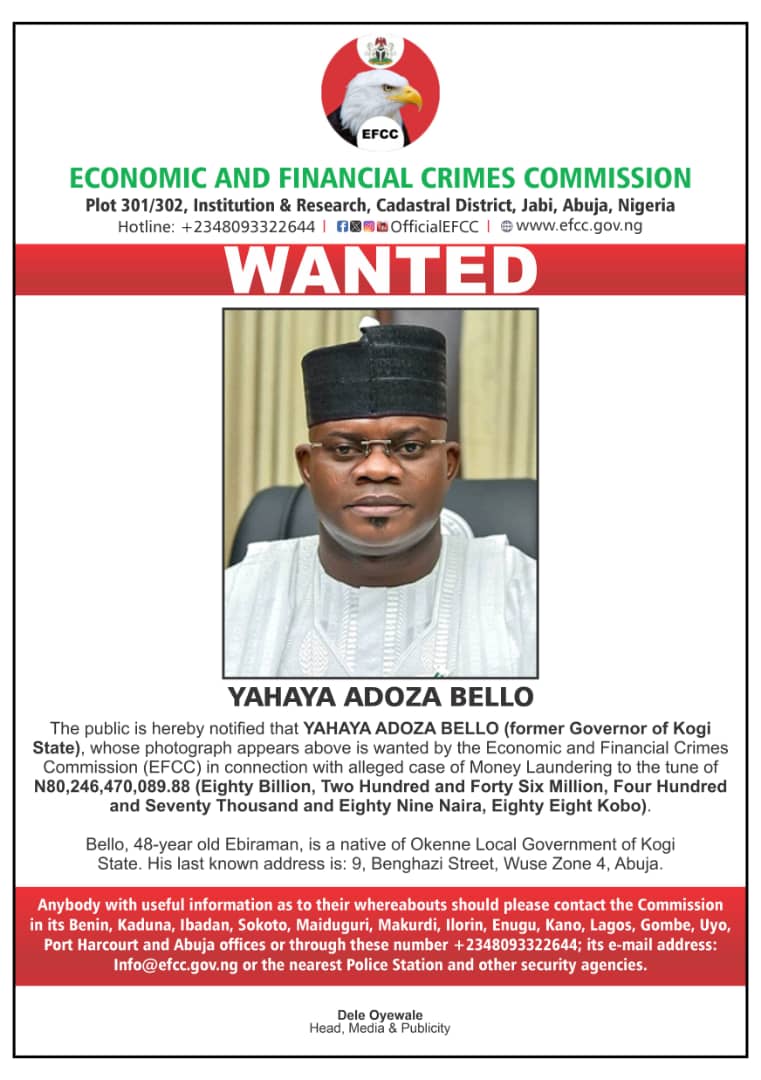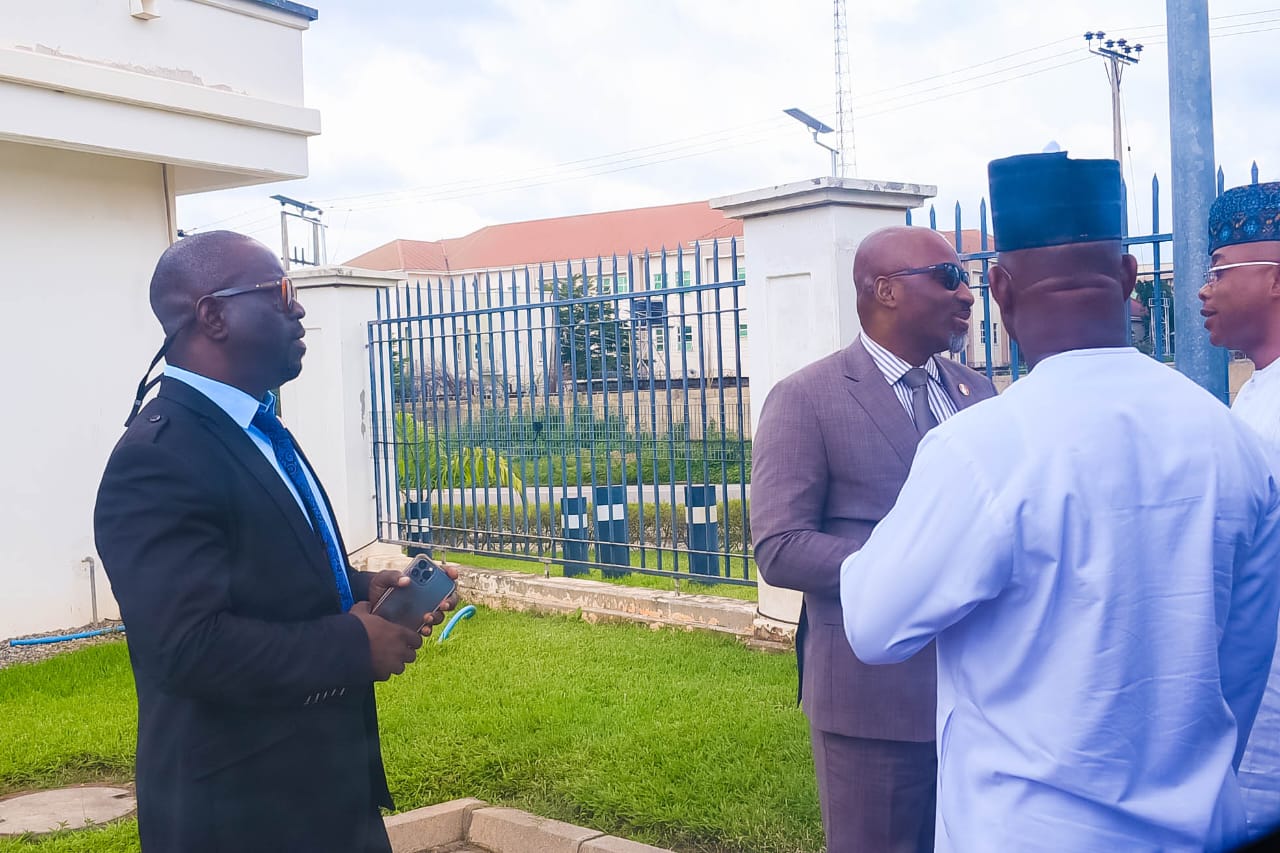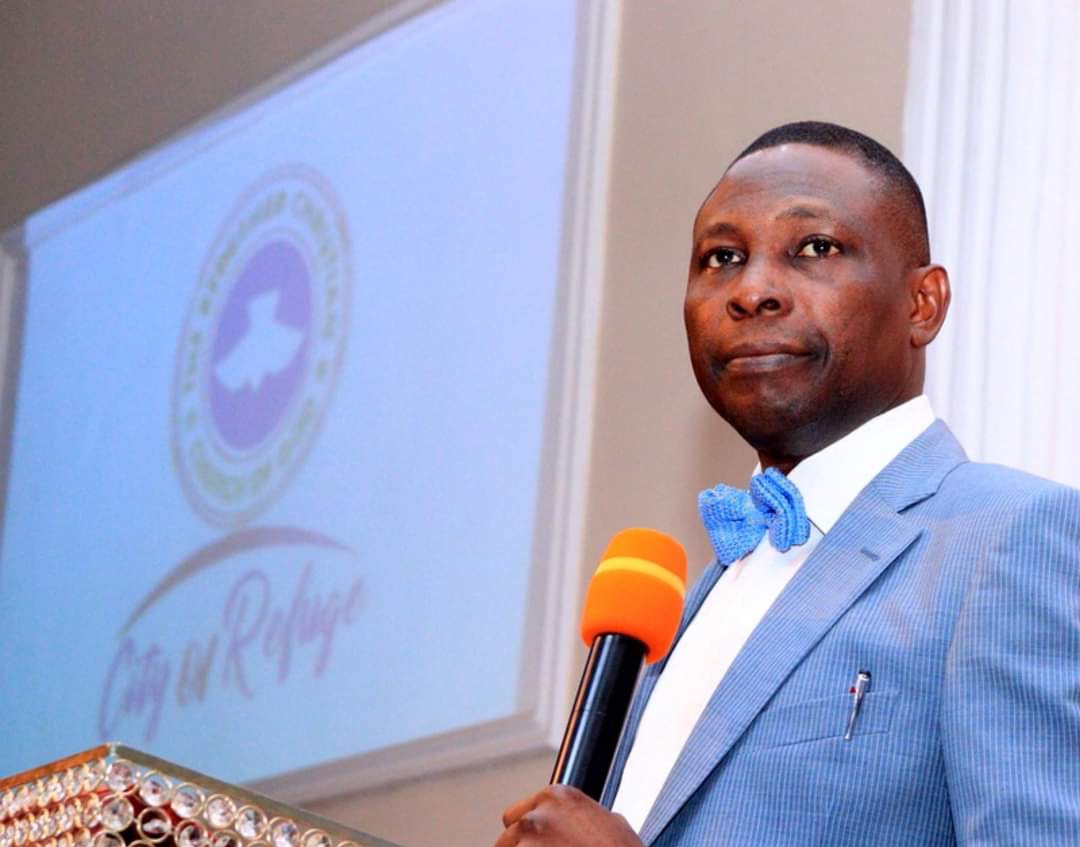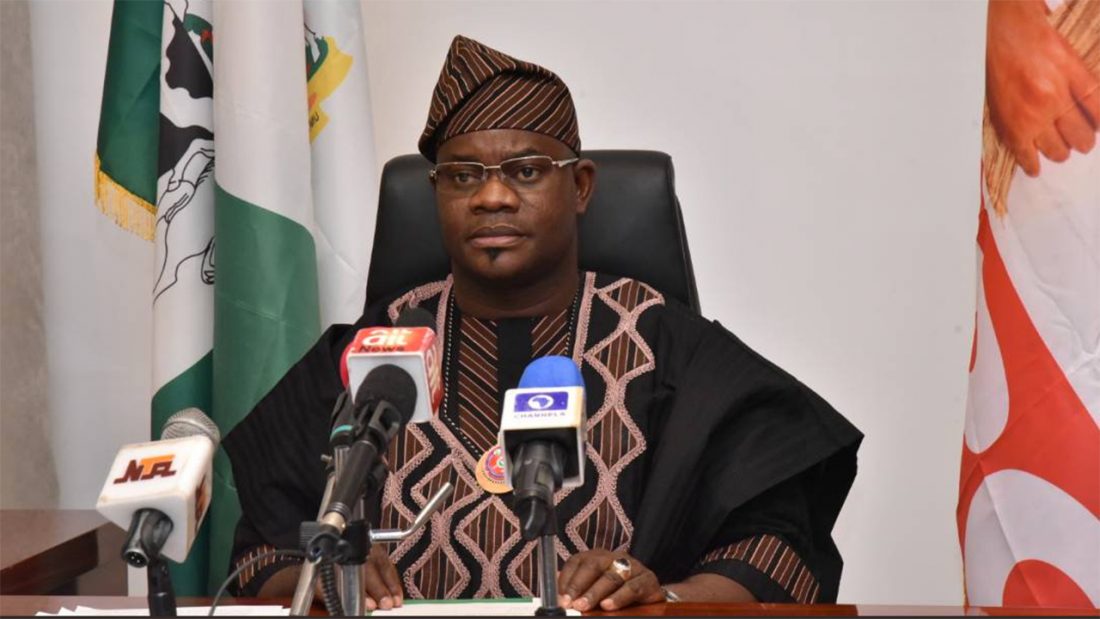The ongoing legal confrontation between the Economic and Financial Crimes Commission, EFCC, and former Kogi State governor Yahaya Bello has raised serious concerns among Nigerians.
As accusations of financial misconduct, money laundering, and misappropriation of funds during Bello’s tenure continue to dominate the headlines, the involvement of other security agencies, such as the Department of State Services, DSS, and the Nigeria Police Force, NPF, has sparked debate over their role in ensuring accountability.
For many well-meaning Nigerians, one question looms large: Why are the heads of these security agencies seemingly “folding their arms” while the institutions they run are dragged into controversy?

Allegations Against Yahaya Bello and the Struggles of the EFCC
Yahaya Bello, who governed Kogi State for eight years, has faced numerous allegations of financial irregularities.
The EFCC, Nigeria’s primary anti-corruption agency, has taken steps to investigate and prosecute the former governor, but these efforts have been met with resistance.
Reports suggest that other security operatives, who should ideally assist in the investigation, have instead obstructed justice, protecting Bello from arrest and due process.
This raises fundamental questions: Should any individual be above the law? Is the protection of one man worth the reputational damage to Nigeria’s security institutions?

Historical Integrity of the DSS and NPF
Both the DSS and NPF have long-standing records of serving Nigeria’s security interests, and their roles in maintaining internal security are well documented.
For instance, the DSS was instrumental in arresting the Egyptian bomber Omar Mohammed Ali Rezaq in 1993, a major achievement in counterterrorism efforts.
Similarly, in 2010, the DSS intercepted a large cache of arms from Iran at the Apapa port in Lagos, upholding Nigeria’s international obligations despite significant risks.
However, the current perception of these institutions has come under strain. The suggestion that they are shielding Bello from the EFCC’s investigations casts a shadow over their otherwise solid reputations.
Rather than appear as though they are taking sides, these agencies must remain neutral, allowing due process to take its course.
HEDA’s Call for Action
The Human and Environmental Development Agenda (HEDA), an anti-corruption organization, has also weighed in, urging the Inspector General of Police and the Director-General of the DSS to enforce court orders against Bello.
In a statement, HEDA’s chairman, Olanrewaju Suraju, expressed concerns over the disregard for the rule of law and accused security agencies of protecting a fugitive.
Suraju emphasized that failure to enforce the court’s directives undermines public trust in Nigeria’s legal and law enforcement systems.
Despite several court orders for Bello’s arrest, he continues to evade justice. Reports indicate that in April, when EFCC operatives attempted to arrest Bello at his residence in Abuja, police officers attached to him obstructed the arrest, allowing Bello to escape.
While the Inspector General of Police later ordered the arrest of Bello’s ADC and the withdrawal of police officers assigned to him, these actions have yet to result in Bello’s appearance in court.
A History of Court Defiance
Bello’s defiance of court proceedings has become a matter of public concern. Since the EFCC’s initial attempt to arraign him in April 2023, Bello has consistently failed to appear in court.
The arraignment has been rescheduled multiple times, with each session ending in his absence.
The EFCC’s prosecutor, Mr Pinheiro, expressed frustration during a recent court proceeding, noting that Bello has disregarded invitations to appear before the court, which now marks the seventh missed court session.
Governor Usman Ododo of Kogi State, who enjoys constitutional immunity, has reportedly used his position to shield Bello from arrest.
This has led to growing frustration within the legal community, as attempts to bypass the governor’s immunity could lead to a constitutional crisis.

Upholding Institutional Integrity
The aim of this piece is not to cast aspersions on the DSS or the NPF. Instead, it seeks to remind these agencies of their duty to uphold the law and maintain public trust.
Institutions like the DSS and NPF, which have historically protected Nigeria’s security and stability, should not allow themselves to be drawn into political or legal controversies that undermine their integrity.
Ultimately, the law must take its course. No individual, regardless of their political or financial standing, should be seen as being above the law.
The DSS and NPF must ensure that they remain neutral, providing the necessary support to the EFCC in its fight against corruption and upholding the values upon which their institutions were founded.
As Nigerians continue to watch this unfolding saga, the actions of the security agencies will either reinforce the public’s trust in their impartiality or contribute to the growing perception of institutional bias.
It is crucial for the heads of these agencies to prioritise the rule of law and demonstrate that Nigeria’s institutions are bigger than any individual.







